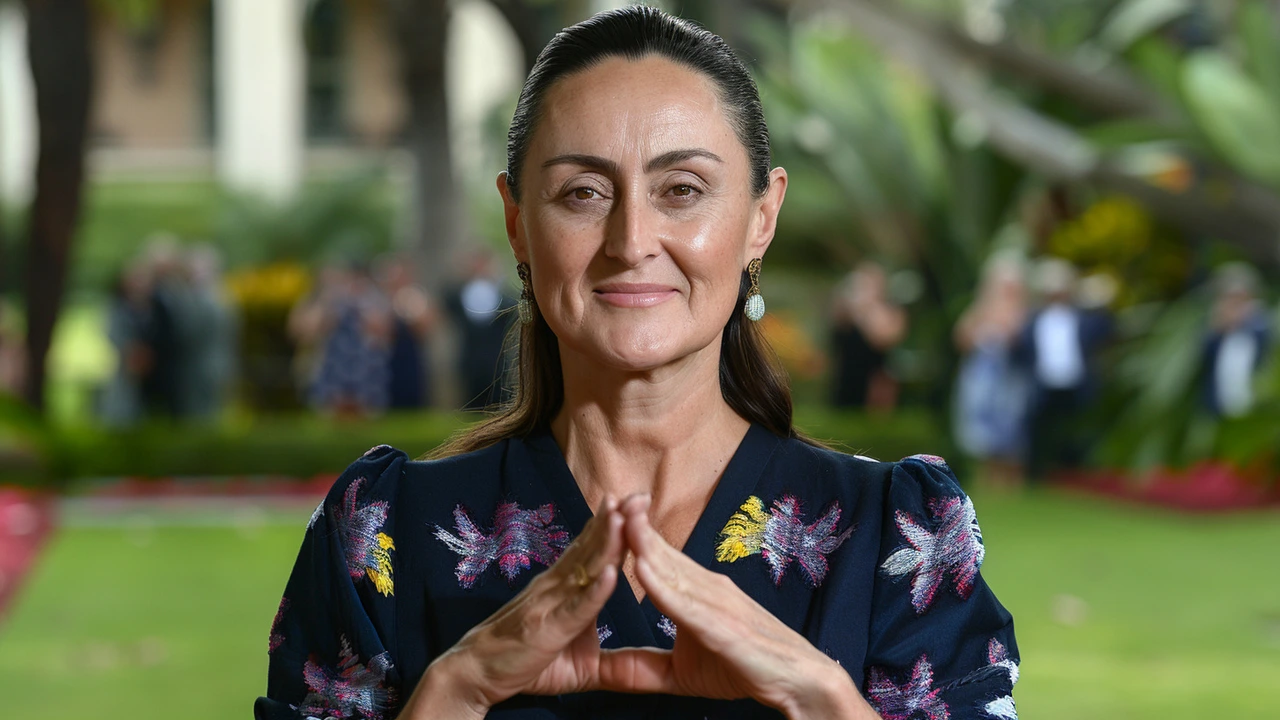Claudia Sheinbaum's Landmark Victory
History was made in Mexico when Claudia Sheinbaum emerged victorious in the country's presidential election, becoming the first woman to ever hold the position. With preliminary results announced by Mexico's electoral authority, Sheinbaum, a former mayor of Mexico City, secured a staggering 58% to 60% of the votes, leaving her closest rival, Xóchitl Gálvez, trailing by about 30 percentage points. This victory marks a monumental milestone for gender equality in Mexico’s political landscape, echoing the global push for more female representation in leadership roles.
A Promising Start
In her emotional victory speech, Sheinbaum acknowledged the historic significance of her win, stating, 'For the first time in the 200 years of the Mexican Republic, I will become the first woman president of Mexico.' This sentiment resonated deeply with many Mexicans across the nation, particularly women who have long advocated for greater representation and equality in government.
From Scientist to President
Born to scientist parents, Sheinbaum's journey to the presidency is both unique and inspiring. She originally studied physics and later earned a doctorate in energy engineering. Her scientific career took her to a prestigious research lab in California, where she focused on Mexican energy consumption patterns and became an expert on climate change. Her dual expertise in science and policy eventually led her to the role of secretary of the environment for Mexico City during López Obrador's tenure as mayor. In 2018, she shattered another glass ceiling by becoming the first female mayor of Mexico City, a role in which she served until 2023 before stepping down to run for president.

Promises of Continuity
Sheinbaum's campaign was built on the promise to continue the work initiated by her mentor, outgoing President Andrés Manuel López Obrador. López Obrador, who will officially hand over power on October 1, 2024, has been instrumental in implementing various welfare programs that have bolstered his popularity. Sheinbaum has pledged to build upon these 'advances,' ensuring that the social safety nets remain robust and that the needs of the most vulnerable citizens are met.
Violence and Challenges
The election, however, was not without its challenges. The campaign was marred by violent attacks, with more than 20 local candidates reportedly killed across Mexico, although some surveys suggest that this number may be as high as 37. Despite these grim statistics, the election proceeded, underscoring the resilience of Mexico's democratic institutions. Ms. Sheinbaum thanked her rival, Xóchitl Gálvez, for her gracious concession and reiterated her commitment to addressing Mexico's deep-seated issues, including the pervasive influence of violent cartels and strained diplomatic relations with the United States.
Relations with the United States
Sheinbaum's presidency holds significant relevance for the United States, particularly concerning issues of migration and drug trafficking. In her statements, she has consistently emphasized her intent to maintain a 'relationship of friendship, mutual respect, and equality' with the United States. She has also committed to 'always defending the Mexicans who are on the other side of the border,' highlighting her focus on the well-being of Mexican immigrants and their families. As a new chapter begins in Mexico's political history, it is evident that Claudia Sheinbaum's leadership will be underpinned by her scientific acumen, her commitment to social welfare, and her determination to navigate the complexities of international diplomacy.
The Path Ahead
As she prepares to take office, Sheinbaum's agenda will undoubtedly face scrutiny from both political opponents and international observers. Her ability to effectively address the challenges presented by violent crime, economic inequality, and international relations will be crucial in defining her presidency. Nevertheless, her election represents a significant shift in Mexico’s political dynamics, offering hope for a more inclusive and progressive future.
With her scientific background and a proven track record in public service, Claudia Sheinbaum is poised to bring a distinct and potentially transformative perspective to the highest office in Mexico. Her leadership will not only shape the country’s domestic policies but also influence its standing on the global stage.

Conclusion
Claudia Sheinbaum's election as Mexico's first female president is a historic achievement that reflects the country's evolving political landscape. With promises of continuity and a focus on addressing critical issues, her presidency is expected to bring significant changes. As Mexico navigates this new era, the world will be watching closely to see how Sheinbaum's leadership unfolds.


mahak bansal
June 5, 2024 AT 03:22Also, the fact that she came from a scientific background and didn’t go the usual political route is refreshing. Most leaders are lawyers or ex-military. She’s a data-driven problem solver.
Lewis Hardy
June 5, 2024 AT 08:05Prakash.s Peter
June 6, 2024 AT 23:57ria ariyani
June 8, 2024 AT 19:49Emily Nguyen
June 9, 2024 AT 10:18Ruben Figueroa
June 10, 2024 AT 20:34Meanwhile, her predecessor had 120k+ murders in his term and she’s the one we’re celebrating? 🤦♂️
Also, ‘scientific acumen’? She studied energy consumption. That’s not rocket science, it’s spreadsheets with a fancy title.
And yet here we are, treating her like the second coming of Ada Lovelace while 2000 people get killed every month.
Progress? Nah. Just a very well-marketed continuity plan with a lipstick upgrade. 🤷♂️